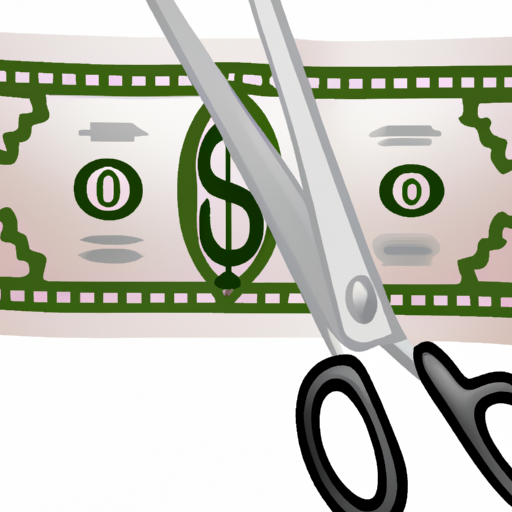Comparing Plans to Get the Best Rate
When it comes to saving money, one of the most effective ways to do so is by comparing different health insurance plans. With so many different plans and rates available, it can be difficult to know which one will provide you with the best rate and coverage. However, by taking the time to compare different plans, you can be sure that you are getting the best rate for the coverage you need.
When comparing plans, there are a few key factors to consider. First, think about your personal health needs and lifestyle. Are you someone who visits the doctor frequently, or do you prefer to take a more hands-off approach to healthcare? If you are someone who visits the doctor often, then you should look for a plan that offers a higher rate of coverage and lower out-of-pocket costs. On the other hand, if you prefer to take a more hands-off approach, then you may be better off with a plan that offers a lower rate of coverage and higher out-of-pocket costs.
Another important factor to consider when comparing plans is the deductible. A deductible is the amount of money you must pay out of pocket before your health insurance kicks in. Generally, the higher the deductible, the lower the premium. However, if you are someone who visits the doctor often, then a higher deductible may not be the best option for you.
Finally, it is important to consider the network of providers available with each plan. Before signing up for a plan, make sure that your preferred provider is in-network. If they are not, you may end up paying more out-of-pocket for your healthcare.
By taking the time to compare different plans, you can be sure that you are getting the best rate for the coverage you need. Make sure to consider your personal health needs and lifestyle, the deductible, and the network of providers available with each plan. Additionally, you can often save money by working with a broker or agent who can help you find the best plan for your individual needs. Taking the time to compare plans can ensure that you are getting the best rate and coverage for your particular situation.

Maximizing Your Health Insurance Benefits
Maximizing your health insurance benefits can make a huge difference in the amount of money you spend on healthcare costs and insurance premiums. At first glance, it may seem like a daunting task, but with a few simple steps, you can make sure you’re getting the most out of your health insurance coverage.
The first step to take when trying to maximize your health insurance benefits is to make sure you understand your plan. It’s important to know what’s covered and what’s not, as well as any out-of-pocket expenses that may be associated with certain procedures or drugs. Take the time to read through your policy and get familiar with any exclusions that could cause you to pay more out of pocket.
The second step is to make sure you’re taking advantage of all the discounts and incentives that may be available. Many health insurance plans offer discounts for preventive care, such as routine medical exams, dental checkups, and vision tests. Additionally, you may be able to take advantage of discounts for generic drugs, as well as discounts for using in-network providers.
Another important step is to explore your options for low-cost health care. There are a variety of programs available for people without insurance or with limited insurance coverage. These include community health centers, free clinics, and sliding-fee scale providers. It’s also worth looking into government-sponsored health care programs, such as Medicaid or CHIP, which can provide coverage to low-income families.
Finally, take the time to compare different insurance plans. Different plans will have different benefits and costs, so it’s important to do your research and find the plan that’s right for you. Consider your current health needs and any potential future costs. Also, look at the co-pays, deductibles and prescription costs, as well as the network of providers available.
Overall, maximizing your health insurance benefits can be a great way to save money on healthcare costs and insurance premiums. With a little bit of effort, you can make sure you’re getting the most out of your health insurance coverage and keep your costs down.

Finding the Right Insurance Provider
Finding the right insurance provider is one of the biggest challenges when it comes to saving money on healthcare costs and insurance premiums. With so many different plans and providers, it can be overwhelming to compare them all and decide which one is best for you. However, there are steps you can take to make sure you get the best coverage and the lowest premiums.
The first step is to research your options. Start by looking at major providers like Aetna, Blue Cross Blue Shield, and United Healthcare. Review their plans and compare the coverage, the monthly premiums, and the co-pays. Then, check out smaller, more regional companies and see how they compare.
Next, consider your needs. Do you need a plan that covers just basic visits to the doctor or do you need a plan that covers more specialized treatments like physical therapy? Make sure you find a plan that covers the services you need and that you can afford.
Additionally, look for incentives and discounts. Many insurance providers offer discounts for being a member of a professional organization, or for taking part in a weight loss or smoking cessation program. It’s always worth asking about discounts or special offers when you’re researching your options.
Another important factor to consider is customer service. Make sure you take the time to read reviews from current customers and check the company’s ratings on consumer sites like Consumer Reports. The better the customer service, the more likely you are to get help with any problems you may have.
Finally, ask questions. Don’t be afraid to ask your insurance provider about their coverage, premiums, and co-pays. It’s also worth asking if they accept other insurance plans and if they provide any special services like nurse hotlines. Asking questions can help you understand your plan and make sure you’re getting the best coverage for your money.
Finding the right insurance provider can be a daunting task, but with just a little bit of research and some savvy shopping, you can get the best coverage at the best rates. Spend some time researching your options, ask questions, and make sure you understand your plan before signing on the dotted line. With the right insurance provider, you can save money on healthcare costs and insurance premiums and get the coverage you need.

Exploring Alternatives to Traditional Health Insurance
Saving money on healthcare expenses and insurance premiums is something that many of us think about from time to time. With rising costs, it can be hard to keep up with the bills. But there are some alternatives to the traditional health insurance that you may want to consider.
The first option is to look into what is known as health sharing plans. These plans can provide you with coverage at a fraction of the cost of traditional health insurance. The way it works is that members of the plan share their healthcare costs with one another. This can be a great way to save money while still getting the coverage you need.
Another option is to look into high-deductible health plans. These plans usually have a much lower monthly premium than traditional plans. You may also be able to get low-cost preventive care and other services with these plans. The downside is that you will have to pay a large deductible before the plan starts to cover your medical expenses.
You may also want to look into health savings accounts. These are accounts that you can use to save money for medical expenses. The money in these accounts can be used to pay for things like doctor visits, prescriptions, and other medical costs. These accounts also have the added benefit of being tax-deductible, so you can save even more money.
Finally, you can look into getting coverage through an employer-sponsored plan. These plans usually have lower costs than traditional health insurance plans and can provide you with some much-needed financial relief. However, employer-sponsored plans are generally only available to those who are employed.
Exploring alternatives to traditional health insurance can be a great way to save money on healthcare expenses and insurance premiums. From health sharing plans to health savings accounts, there is a wide range of options available. Take the time to explore these options and see what works best for you and your family. You may be surprised at how much money you can save.

Using Health Savings Accounts (HSAs)
If you’re looking for ways to save money on healthcare costs and insurance premiums, a Health Savings Account (HSA) might be the perfect solution. An HSA is a special type of savings account designed specifically to help people pay for qualified healthcare expenses. It allows you to set aside pre-tax income or money from a flexible spending account to pay for medical expenses. Not only does this save you money on healthcare costs, but it also reduces your overall tax burden.
One of the best things about HSAs is that the money grows over time without being taxed. This means that you can use the money towards future medical expenses and save even more money in the long run. You can even take the money out of the HSA without penalty if you’re not able to use it for healthcare expenses. This makes HSAs a great way to get a tax break and save for the future.
Another great advantage of an HSA is that it can be used to pay for insurance premiums. Many insurance companies offer discounted rates when you use an HSA to pay for your premiums. This can save you a lot of money in the long run, as insurance premiums can be expensive. You can also use the money in your HSA to pay for co-pays and deductibles that your insurance may not cover. This can help to reduce your out-of-pocket expenses, making it easier to afford healthcare.
HSAs are also a great way to save for retirement. The money in your HSA can be used to pay for medical expenses in retirement and can be used to supplement your income. This can help you to stay healthy and maintain a comfortable lifestyle in your later years.
Overall, HSAs are a great way to save money on healthcare costs and insurance premiums. They allow you to save money on taxes and set aside money for future medical expenses. They also provide a great way to save for retirement and help to reduce out-of-pocket expenses. If you’re looking for ways to save money on healthcare, an HSA is a great option.

Taking Advantage of Tax Breaks
The cost of healthcare and insurance premiums can be difficult to manage, but there are ways to make sure you are taking advantage of every opportunity to save money. One of the most important ways to save money on healthcare costs and insurance premiums is to take advantage of the tax breaks available.
Tax breaks can help lower your overall healthcare costs, and make sure you are getting the best possible deal on your insurance premiums. In the United States, the Internal Revenue Service (IRS) offers several tax breaks to help you save money on healthcare costs and insurance premiums.
The most common tax break is the medical expense deduction. This deduction allows you to deduct medical expenses that exceed 7.5% of your adjusted gross income. This includes expenses such as doctor visits, hospital stays, prescription drugs, and even some health insurance premiums.
In addition, the IRS also offers the Health Savings Account (HSA) as a way to save money on healthcare costs and insurance premiums. An HSA is a tax-advantaged account that allows you to make pre-tax contributions to pay for qualified medical expenses.
The IRS also offers the Flexible Spending Account (FSA) as another way to save money on healthcare costs and insurance premiums. An FSA allows you to contribute pre-tax dollars to pay for medical expenses, such as co-pays, prescription drugs, and vision and dental care.
The IRS also offers the Health Reimbursement Account (HRA) as a way to save money on healthcare costs and insurance premiums. An HRA is an employer-funded account that can be used to pay for qualified medical expenses.
Finally, the IRS also offers the Dependent Care Credit as a way to save money on healthcare costs and insurance premiums. This credit allows you to deduct up to 35% of your qualifying dependent care expenses, up to a maximum of $3,000 for one dependent, or $6,000 for two or more dependents.
By taking advantage of these tax breaks, you can make sure you are getting the best possible deal on your healthcare costs and insurance premiums. With a little bit of research, you can make sure you are taking advantage of every opportunity to save money.

Finding Low-Cost Medical Providers
When it comes to saving money on healthcare costs, it can be a challenge. Health insurance premiums are often expensive, and the cost of healthcare services can be daunting. Fortunately, there are ways to lower your costs while still getting the care you need. One of the most effective ways is to find low-cost medical providers in your area.
Finding a low-cost medical provider is easier than you might think. Start by checking with your insurance provider to see which medical providers they have negotiated discounted rates with. Many insurance companies offer discounted rates for certain providers, so it is worth checking to see if this is an option for you. You can also search online for medical providers who offer discounted rates or payment plans. Often, these providers can be found through websites like Zocdoc or the HealthGrades directories.
Another way to find low-cost providers is to ask friends and family for recommendations. They may be able to recommend providers within their network who offer lower rates. Additionally, you can ask your primary care physician for recommendations. Your primary care physician may be able to refer you to in-network providers who offer discounts.
You can also look for medical providers who are not in your insurance network. In some cases, these providers may offer lower rates or payment plans. Before you see one of these providers, however, make sure to ask them about their rates and payment options. Additionally, make sure you understand what services are covered and what costs you will be responsible for.
Finally, if you are concerned about the cost of insurance premiums, there are a few options you can consider. You may be able to switch to a high-deductible health plan, which can lower your premiums but still provide you with coverage in case of an emergency. Additionally, you can look for a plan that covers preventive care, as this can help you avoid costly medical bills in the future.
Finding low-cost medical providers can be a great way to save money on healthcare costs and insurance premiums. By taking advantage of discounted rates and payment plans, you can get the care you need while also protecting your financial health. With a little bit of research, you can find the best options for your needs and budget.

Utilizing Wellness Programs
When it comes to saving money on healthcare costs and insurance premiums, utilizing wellness programs can be an effective option. Wellness programs provide individuals and families with an opportunity to become more proactive and engaged in their own health and wellbeing. By participating in wellness programs, individuals can not only save money on healthcare costs and insurance premiums, but also improve their overall health and wellbeing.
Wellness programs are designed to help individuals and families identify and address any potential health issues they may be facing. By participating in wellness programs, individuals can have access to medical professionals and resources to help them make healthy lifestyle changes and better manage any existing health concerns. Additionally, wellness programs may also provide individuals and families with access to health screenings, fitness classes, nutrition counseling, and other resources to help them stay healthy.
In addition to improving their health and wellbeing, individuals and families can also save money on healthcare costs and insurance premiums by participating in a wellness program. Wellness programs can provide individuals and families with a variety of discounts and incentives that can help to lower the cost of their healthcare expenses. For example, some wellness programs may provide discounts on medications, gym memberships, and other healthcare services. Additionally, participating in a wellness program may also qualify individuals and families for rewards, such as reduced insurance premiums or other financial incentives.
There are a variety of ways in which individuals and families can take advantage of wellness programs. For instance, some employers may offer wellness programs as part of their benefits package. Additionally, individuals and families can find wellness programs offered by health care providers, local health centers, or online. It is important to research the different options available and to select a wellness program that best meets the individual’s or family’s needs.
Overall, utilizing wellness programs can be a great way for individuals and families to save money on healthcare costs and insurance premiums while also improving their health and wellbeing. Wellness programs provide individuals and families with access to resources and incentives that can help them become more proactive and engaged in their own health and wellbeing. Additionally, participating in a wellness program can also help individuals and families save money on healthcare costs and insurance premiums. Therefore, it is important for individuals and families to take the time to research the different wellness program options available and to select the one that best meets their needs.

Taking Steps to Improve Your Health
It’s no secret that medical care and insurance premiums can be expensive, but there are ways to save money on healthcare costs without sacrificing your health. Taking proactive steps to improve your health can not only save you money, but also help you feel better overall.
The first step to improving your health is to make sure you’re getting adequate nutrition. Eating a balanced diet that includes a variety of fruits, vegetables, and whole grains is essential for staying healthy. Additionally, avoid processed foods, which are often filled with unhealthy ingredients and can lead to obesity and other health problems.
The second step is to make sure you’re getting enough exercise. Exercise helps to keep your body healthy and strong, and it can also reduce stress. Even if you can’t get to the gym, there are plenty of ways to stay active, such as taking a walk or a bike ride, or playing a sport. It’s important to find a routine that works for you, and stick to it.
Thirdly, it’s important to make sure you’re getting enough sleep. Getting at least 7-8 hours of sleep each night is essential for keeping your body healthy and rested. If you find it difficult to get to sleep, or are having trouble staying asleep, try taking a warm bath or using calming essential oils in your bedroom.
Fourthly, you should establish regular check-ups with your primary care physician. Regular check-ups can help you stay on top of your health and catch any potential problems before they become serious. Additionally, if you’re having any kind of pain or discomfort, don’t hesitate to make an appointment with your doctor.
Fifthly, if you’re having any chronic or recurring health problems, consider seeing a specialist. A specialist will be able to diagnose and treat any underlying health issues that may be causing your symptoms. In some cases, seeing a specialist can save you money in the long run by helping you to avoid costly medical procedures.
Finally, make sure you’re taking advantage of any discounts or specials your health insurance company may offer. Many health insurance companies offer discounts for preventive care, such as regular check-ups or immunizations. Additionally, many companies offer discounts for generic medications, which can save you money on your prescriptions.
By taking these steps to improve your health, you can not only save money on healthcare costs and insurance premiums, but also feel better overall. Taking proactive steps to manage your health is an important step in ensuring you stay healthy and save money in the long run.


